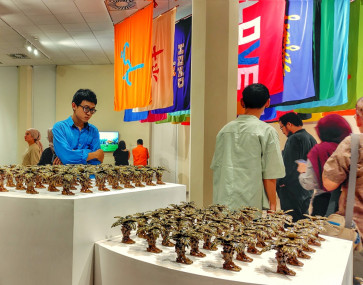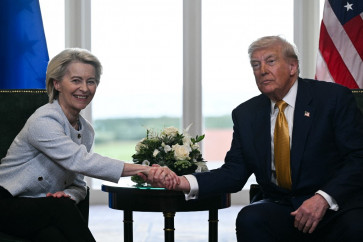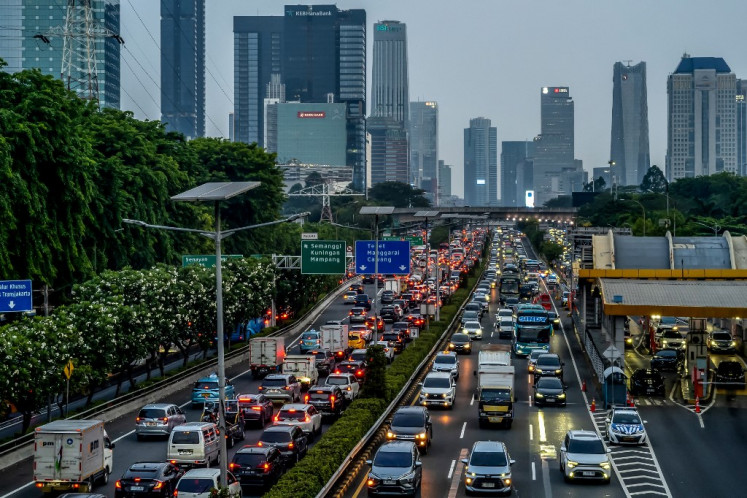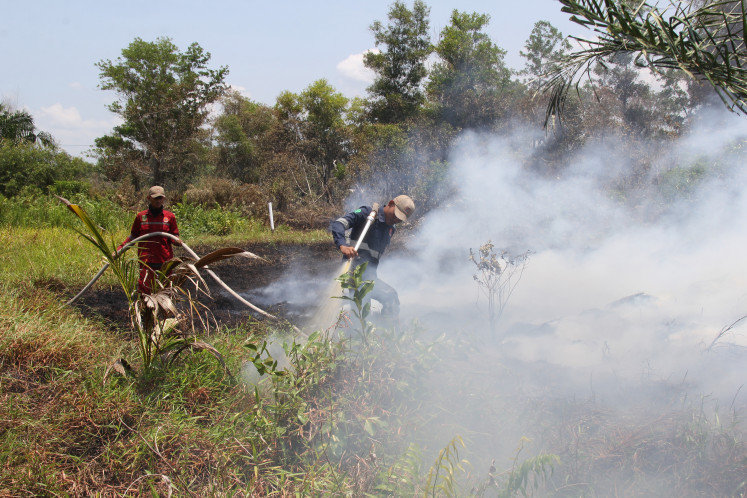Popular Reads
Top Results
Can't find what you're looking for?
View all search resultsPopular Reads
Top Results
Can't find what you're looking for?
View all search resultsSupreme Court rejects recall of graft courts
The Supreme Court rejected calls to revoke regional graft courts on Friday, voicing concerns over legal process and potential resources lost to alter anticorruption measures
Change text size
Gift Premium Articles
to Anyone
T
he Supreme Court rejected calls to revoke regional graft courts on Friday, voicing concerns over legal process and potential resources lost to alter anticorruption measures.
Court justice Djoko Sarwoko said that such requests would hamper the legal process for graft suspects and waste resources that the government had spent for the establishment of local courts.
“Wouldn’t it be another waste of state money? We have spent more than Rp 8 billion (about US$1 million) to recruit the ad hoc corruption judges,” said Djoko, who also leads the court’s internal monitoring body.
At least 40 corruption defendants have been acquitted by four regional corruption courts since the beginning of this year. Topping the list is the Surabaya Corruption Court in East Java, which released 21 corruption defendants.
The most significant public outcry, however, was triggered by the Bandung Corruption Court in West Java, which acquitted the first defendant coming from the Corruption Eradication Commission (KPK).
The court controversially acquitted Bekasi Mayor Mochtar Mohamad last month. Mochtar had been detained by the KPK on multiple counts of graft, including attempted bribery of Supreme Audit Agency (BPK) officials and conspiracy to pay members of the Bekasi Legislative Council to accelerate the approval of the city budget proposal.
Mochtar’s acquittal shocked the KPK, which previously had a clean sheet in sending corruption suspects to jail since its establishment in 2003.
All eyes have been on the regional courts ever since, questioning the impartiality and professionalism of local judges.
“Regional corruption courts have turned out to be worse than regular courts. [Among them] the idea to freeze or even disband the corruption courts has become logical,” Constitutional Court chief justice Mahfud MD said on Friday.
It was the 2009 Corruption Court Law that ordered the establishment of local corruption courts.
The law mandates the Supreme Court establish the courts down to municipality and regency levels.
Within two years, the Supreme Court managed to establish 33 corruption courts in all 33 provincial capitals in the country and recruited 192 ad hoc corruption judges.
“What we have done is merely fulfill the 2009 mandate. If you want to stop [establishing regional corruption courts], then change the law first,” court spokesman Hatta Ali said.
House of Representatives’ law and human rights commission member Bambang Soesatyo said revising the Corruption Court Law would be like “shattering a mirror when you see your face is ugly.”
“A corruption trial is only one part of the entire judicial process. What we need is a complete evaluation, including investigation and prosecution by the KPK. A judge may have acquitted a defendant because the prosecutors’ indictment is weak,” he said.
Indonesia Corruption Watch (ICW) activist Donal Fariz said that evaluating the recruitment process should be the main target of the courts’ review.
“We demand a complete evaluation in three major aspects, namely the mechanism for recruiting judges, evaluating the capacity of the current judges and monitoring measures,” he said.
Djoko acknowledged that the impartiality and integrity of the ad hoc judges might be questioned. “Most of the applicants had backgrounds as lawyers. When they become judges, they must reverse their judicial mentality,” he said.
ICW coordinator Febri Diansyah proposed that the number of regional corruption courts be reduced to only five.
“The House of Representatives may immediately initiate a revision of the 2009 Corruption Law or the President could issue a regulation-in-lieu-of-law [Perppu] to provide a legal umbrella and certainty during the revision processes,” he said.










